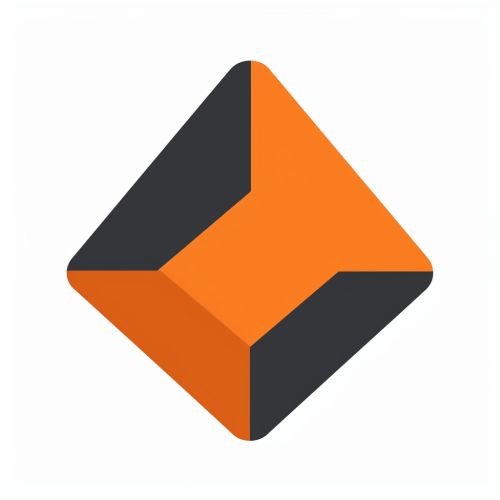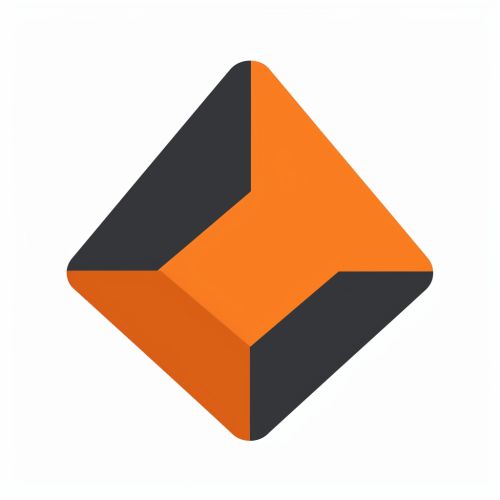GitLab: Difference between revisions
(Created page with "== Overview == GitLab is a comprehensive DevOps platform that provides a suite of tools for software development, version control, continuous integration, and continuous deployment (CI/CD). It allows teams to collaborate on code, manage projects, and automate the software development lifecycle. GitLab is available in both open-source and commercial versions, offering a range of features to meet the needs of different organizations. == History == GitLab was fou...") |
No edit summary |
||
| Line 92: | Line 92: | ||
* [[Docker (software)]] | * [[Docker (software)]] | ||
[[Image:Detail-97115.jpg|thumb|center|GitLab logo on a white background.|class=only_on_mobile]] | |||
[[Image:Detail-97116.jpg|thumb|center|GitLab logo on a white background.|class=only_on_desktop]] | |||
[[Category:DevOps]] | [[Category:DevOps]] | ||
[[Category:Version Control]] | [[Category:Version Control]] | ||
[[Category:Software Development Tools]] | [[Category:Software Development Tools]] | ||
Latest revision as of 17:07, 20 July 2024
Overview
GitLab is a comprehensive DevOps platform that provides a suite of tools for software development, version control, continuous integration, and continuous deployment (CI/CD). It allows teams to collaborate on code, manage projects, and automate the software development lifecycle. GitLab is available in both open-source and commercial versions, offering a range of features to meet the needs of different organizations.
History
GitLab was founded by Dmitriy Zaporozhets and Valery Sizov in 2011. The project began as an open-source alternative to GitHub, aiming to provide a more integrated and collaborative environment for developers. Over the years, GitLab has evolved into a full-fledged DevOps platform, incorporating a wide array of features to support the entire software development lifecycle.
Architecture
GitLab's architecture is designed to be modular and scalable, allowing it to handle large-scale projects and teams. The platform is built on top of several key components:
- **Git**: The core version control system used for managing source code.
- **Gitaly**: A service that handles Git repository storage and access.
- **PostgreSQL**: The primary database used for storing metadata and configuration.
- **Redis**: Used for caching and job queue management.
- **Sidekiq**: A background job processing system.
- **NGINX**: A web server and reverse proxy for handling HTTP requests.
Features
- Version Control
GitLab's version control system is based on Git, providing a robust and flexible way to manage source code. Key features include:
- **Branching and Merging**: Support for multiple branches and efficient merging strategies.
- **Merge Requests**: A mechanism for proposing, discussing, and reviewing code changes.
- **Code Review**: Tools for peer review, including inline comments and approval workflows.
- **Commit History**: Detailed logs of all changes made to the codebase.
- Continuous Integration/Continuous Deployment (CI/CD)
GitLab CI/CD is a powerful toolset for automating the build, test, and deployment processes. Features include:
- **Pipelines**: Define a series of stages and jobs to be executed in sequence or in parallel.
- **Runners**: Agents that execute CI/CD jobs on different environments.
- **Artifacts**: Files generated by jobs that can be shared between stages.
- **Environments**: Define and manage different deployment targets, such as staging and production.
- Project Management
GitLab offers a range of project management tools to help teams plan and track their work:
- **Issue Tracking**: Create, assign, and manage issues with customizable workflows.
- **Milestones**: Group issues into milestones to track progress towards larger goals.
- **Boards**: Visualize work using Kanban-style boards.
- **Time Tracking**: Log time spent on issues and tasks.
- Security and Compliance
Security is a critical aspect of GitLab, with features designed to help teams maintain secure and compliant codebases:
- **Static Application Security Testing (SAST)**: Automatically scan code for vulnerabilities.
- **Dynamic Application Security Testing (DAST)**: Test running applications for security issues.
- **Dependency Scanning**: Identify vulnerabilities in third-party libraries and dependencies.
- **Container Scanning**: Scan Docker images for security vulnerabilities.
Deployment Options
GitLab can be deployed in several ways to meet the needs of different organizations:
- **GitLab.com**: A cloud-hosted version of GitLab, managed by the GitLab team.
- **Self-Managed**: Install GitLab on your own infrastructure, with full control over configuration and customization.
- **Kubernetes**: Deploy GitLab on a Kubernetes cluster for scalable and containerized environments.
Integrations
GitLab integrates with a wide range of tools and services to enhance its functionality:
- **IDE Integrations**: Plugins for popular IDEs like Visual Studio Code and JetBrains IntelliJ.
- **Third-Party Services**: Integrations with tools like Jira, Slack, and Trello.
- **API**: A comprehensive REST API for automating and extending GitLab's capabilities.
Community and Support
GitLab has a vibrant community of users and contributors who help drive the platform's development. The community contributes to the open-source version of GitLab, participates in discussions, and provides support through forums and chat channels. GitLab also offers commercial support options for enterprise customers, including dedicated support teams and service level agreements (SLAs).
Future Development
GitLab continues to evolve, with a focus on expanding its DevOps capabilities and improving the user experience. Future development plans include:
- **Advanced Analytics**: Enhanced reporting and analytics tools to provide deeper insights into project performance.
- **AI and Machine Learning**: Integrating AI and ML technologies to automate routine tasks and improve code quality.
- **Enhanced Security**: Continued investment in security features to help organizations protect their code and data.
See Also


